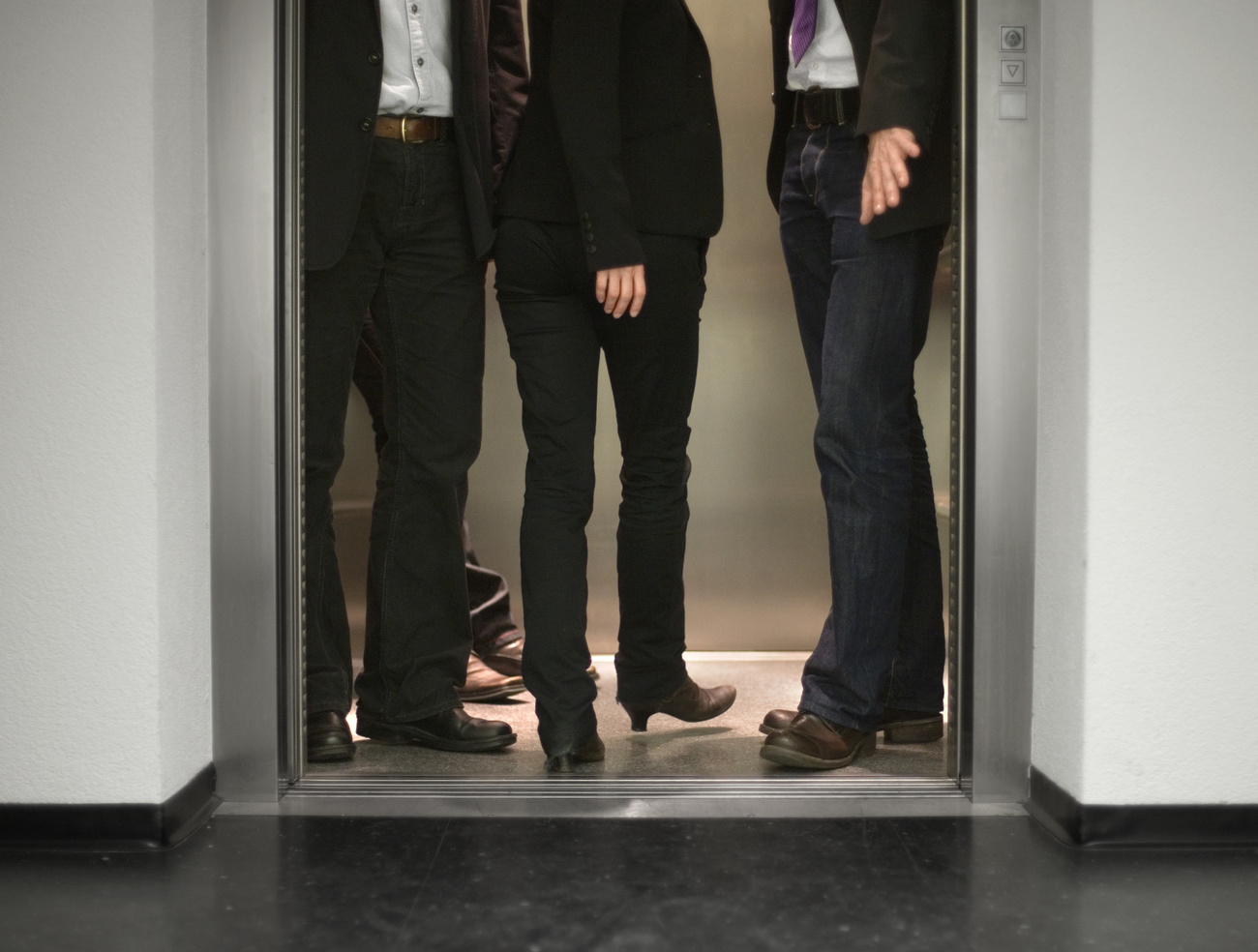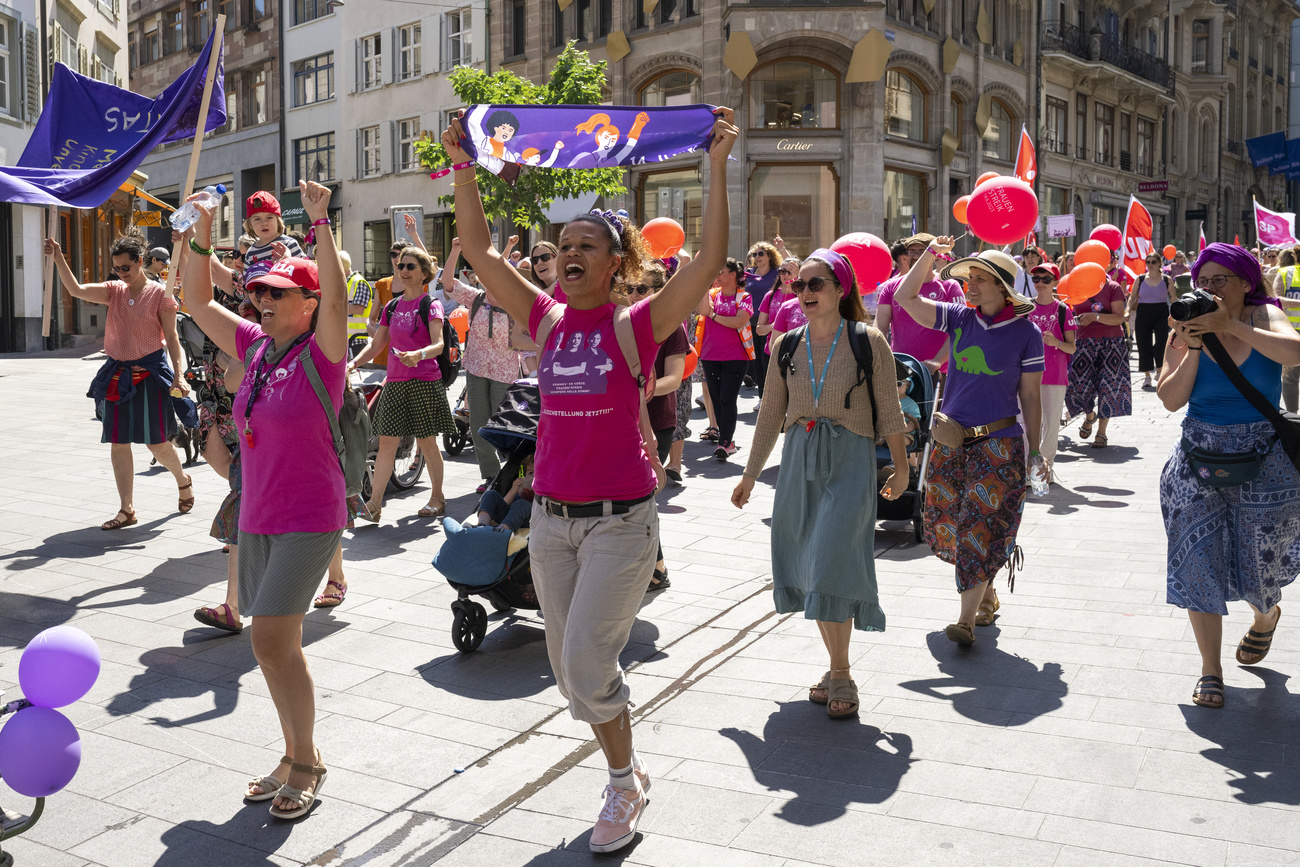
Switzerland tumbles down global equality ranking

Switzerland has fallen eight places – to 21st – in the annual gender equality index of the World Economic Forum (WEF). More generally, the global situation on this issue is stagnating: at the current rate it will take 131 years to achieve parity.
A week after women across Switzerland marched against inequality and sexism, the WEF’s Global Gender Gap Report 2023 reveals that the Alpine country did slightly worse than last year in absolute terms. Nor does it rank among the top countries in terms of wages, with the gender gap having been narrowed by just 70%.
Among the individual countries, Switzerland’s performanceExternal link falls far behind that of Iceland, which remains the best performer. Norway moved up one place to second, overtaking Finland. By region, for the second year running, Europe is the region that has succeeded most in reducing the difference between men and women, by almost 77%. Switzerland is 13th in this regional bloc.
Out of the four indicators included in the WEF’s assessment, published in Geneva on Wednesday, Switzerland ranks only 63rd for economic participation. Worse, the country, which is usually praised for its education, is ranked 102nd for gender parity in educational attainment. However, it remains in first place for the literacy rate, access to higher education and the birth ratio.
Switzerland ranks 115th for health, the only indicator on which it has improved over the past year compared to other countries. On the other hand, it is in the top 15 for political emancipation, coming 14th.

More
Proportion of women on boards of directors rises to over 30%
131 years for equality
Gender parity globally has recovered to pre-Covid levels, but the pace of change has stagnated as converging crises slow progress, according to the report’s authors. The overall gender gap has closed by 0.3 percentage points compared with last year’s edition.
“While there have been encouraging signs of recovery to pre-pandemic levels, women continue to bear the brunt of the current cost of living crisis and labour market disruptions,” said Saadia Zahidi, WEF managing director. “An economic rebound requires the full power of creativity and diverse ideas and skills. We cannot afford to lose momentum on women’s economic participation and opportunity.”
The Global Gender Gap Report, now in its 17th edition, says that at the current rate it will take 131 years to achieve equality. This is a step backwards, as 100 years would have been expected without the regressions in 2020 and 2021.
The WEF surveyed the differences in 146 countries. Of these, 102 have been in the index since 2006. Not included in 2022 were Russia, Cuba, Croatia, Iraq, Mauritania, Papua New Guinea, Syria, Venezuela, Yemen, and Trinidad and Tobago.

More
Swiss women take to streets to fight inequality and sexism

In compliance with the JTI standards
More: SWI swissinfo.ch certified by the Journalism Trust Initiative






























You can find an overview of ongoing debates with our journalists here . Please join us!
If you want to start a conversation about a topic raised in this article or want to report factual errors, email us at english@swissinfo.ch.